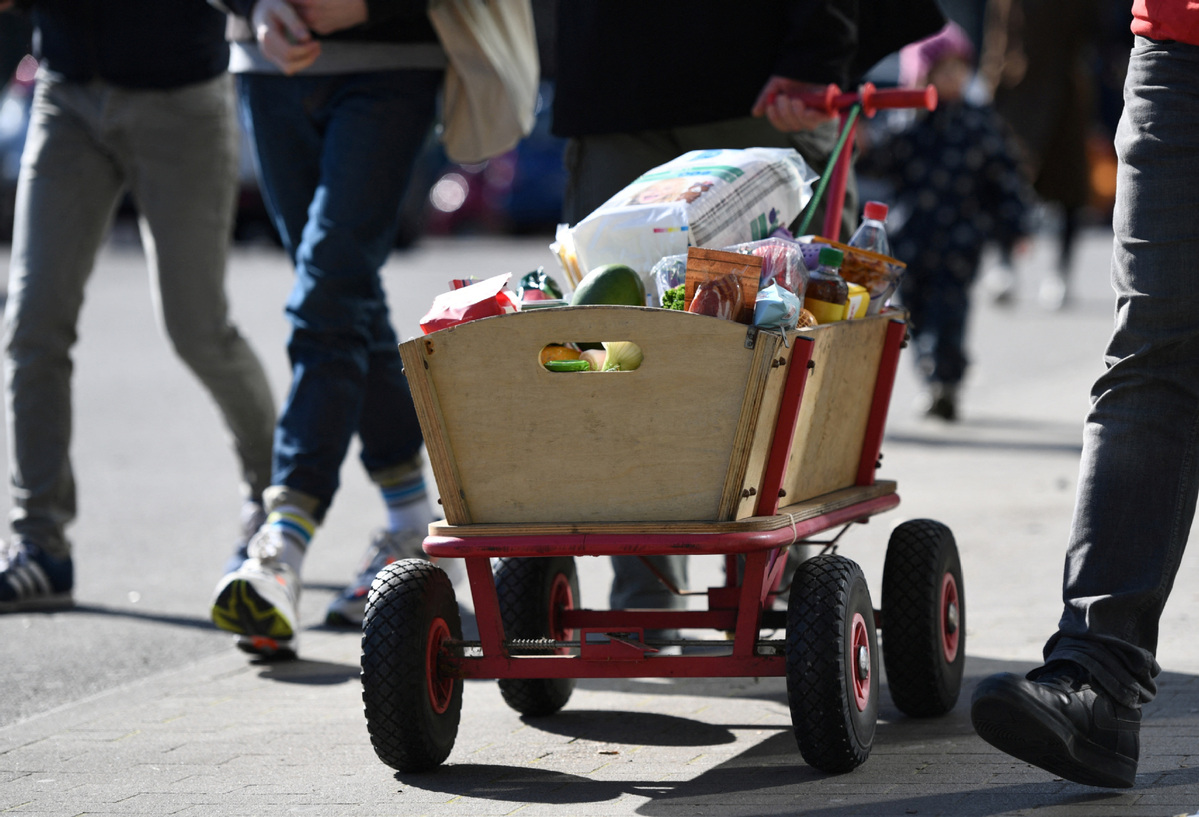Study reveals rising poverty in Europe
By EARLE GALE in London | China Daily Global | Updated: 2023-11-28 09:17

Poverty has forced most Europeans to skip meals during the past three years, according to a survey conducted by Ipsos on behalf of the charity French Secours Populaire, which advocates for people on low incomes.
The survey of 10,000 Europeans in 10 nations asked whether money worries had worsened or improved during the preceding three years.
More than half said their situation had worsened, with 29 percent saying they were so short of money that a single unexpected expense would plunge them into difficulty.
The results, published on Monday in the charity's European Barometer on Poverty and Precariousness, found 38 percent of Europeans were no longer able to eat three meals a day on a regular basis. And 21 percent of parents had skipped meals so they could feed their children.
The survey quizzed people living in France, Germany, Greece, Italy, Moldova, Poland, Portugal, Romania, Serbia, and the United Kingdom.
The pollsters found the main reason for the poor financial situation in many European households was the fast-rising cost of goods and services, with price inflation having tripling during 2022 and the cost of housing, water, and fuel rising by 18 percent during the course of a year. At the same time wages remained relatively stagnant.
Financial worries
The survey followed other recent worrying assessments of increasing levels of poverty throughout Europe, with Eurostat, the European Union's statistics agency reporting 17 percent of the population of the 27-nation bloc was "at risk of poverty" and that only 15 percent of Europeans had enough money not to have financial worries.
Another survey, conducted by the Joseph Rowntree Foundation in June, found the UK had 5.7 million low-income households that were so lacking in money they had insufficient access to food.
And another survey, by the Equality Trust, found the gulf between rich and poor in the UK was actually being exacerbated by the government, which, it concluded, was spending more money than any other European nation on subsidizing the rich through structural inequality.
Priya Sahni-Nicholas, the co-executive director of the Equality Trust, told The Guardian newspaper the growing chasm between rich and poor was "causing huge damage" to the economy.
As a result, she said: "We have shorter healthy working lives, poorer education systems, more crime, and less happy societies."
The survey released this week for French Secours Populaire found money worries among Europe's population now mean a significant number of people have turned off heaters, avoided treatment for medical problems, and borrowed as a result.
The survey found one person in 12 in Italy is in "absolute poverty "and relies on discounted food and food banks. And the situation was even worse in Greece and Moldova, which had more people at risk from poverty than any other European nation.
























